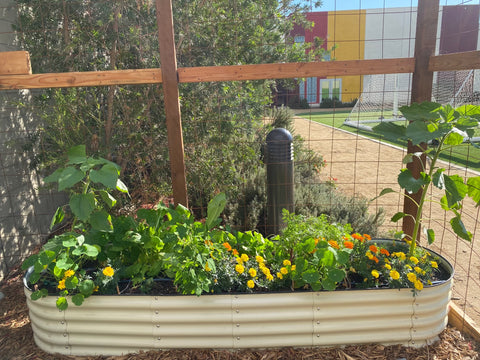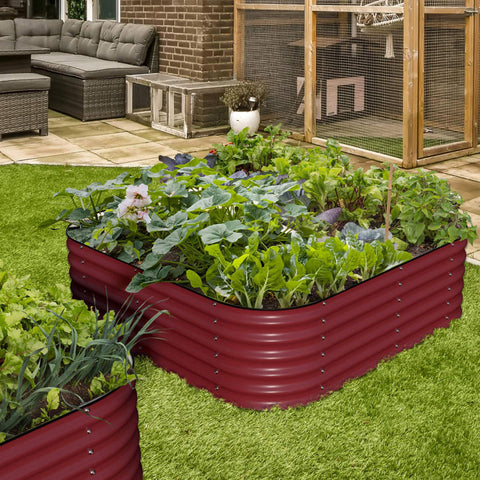Save Water! Say Goodbye to Frequent Irrigation of Raised Garden Beds
Hello everyone! Today, I'd like to share some tips on how to avoid frequent irrigation of raised garden beds, thereby saving water and conserving energy. For those of you who love gardening but struggle with the need for constant watering, these tips may be helpful.
Choose appropriate plants
When designing raised garden beds, selecting plants that are suitable for arid environments is crucial. Opt for drought-tolerant plants such as cacti, succulents, and desert flora. These plants can store water for extended periods, reducing the need for frequent irrigation.
Optimize soil texture
Choosing the right soil texture for raised garden beds is also essential. Mix sandy soil with organic matter to improve drainage and prevent water from pooling. Additionally, ensure the soil is adequately moist before planting to provide sufficient water for the initial growth stage.
Add mulch
Adding mulch to raised garden beds is another effective method. Use organic mulching materials like wood chips, straw, or compost to reduce water evaporation and maintain soil moisture. Mulch also helps prevent weed growth and keeps the bed surface tidy.
Schedule watering wisely
Proper timing of watering is key to avoiding frequent irrigation. Water your plants in the cooler mornings or evenings to reduce water evaporation and allow for better water absorption. Avoid watering during hot midday or afternoon periods to prevent water from being evaporated by the sun.
Install a drip irrigation system
For further water conservation, consider installing a drip irrigation system. Drip systems deliver water directly to the plant's roots, minimizing water waste. By adjusting the flow and timing of the drip system, you can customize a watering schedule based on your plants' needs.
Regularly monitor plant hydration
Regularly monitoring the plants' water status is crucial. Observe the leaves for signs of wilting or drooping, as well as the moisture level on the soil surface. Assess the soil moisture by touch, and if it feels dry, it's time to water. However, avoid overwatering to prevent root rot or the proliferation of diseases.
Harness rainwater and recycle water
Harnessing rainwater and recycling water is an excellent way to further save water. Install rainwater harvesting systems to use rainwater for watering your raised garden beds. Additionally, collect household water, such as from washing vegetables or clothes, after simple treatment, and use it for irrigation. This not only conserves tap water resources but also reduces wastewater discharge.
Choose appropriate irrigation tools
Selecting suitable irrigation tools can also help reduce water waste. For example, using a nozzle or watering can allows for precise delivery of water to the plant roots, minimizing water loss. Sprinklers, compared to nozzles, result in higher water evaporation, so whenever possible, avoid using sprinkler irrigation.
Educate and raise awareness
Lastly, the importance of education and raising awareness cannot be overlooked. By providing information and tips on water-saving irrigation to family members, neighbors, and the community, we can encourage more people to adopt water-saving practices. Together, let's make a collective effort to conserve water resources and protect the environment.
By implementing measures such as choosing appropriate plants, optimizing soil texture, adding mulch, scheduling watering wisely, installing drip irrigation systems, monitoring plant hydration, harnessing rainwater and recycling water, selecting suitable irrigation tools, and educating others, we can bid farewell to the hassle of frequent irrigation of raised garden beds. Let's take action and practice water-saving irrigation, contributing to a greener future!


